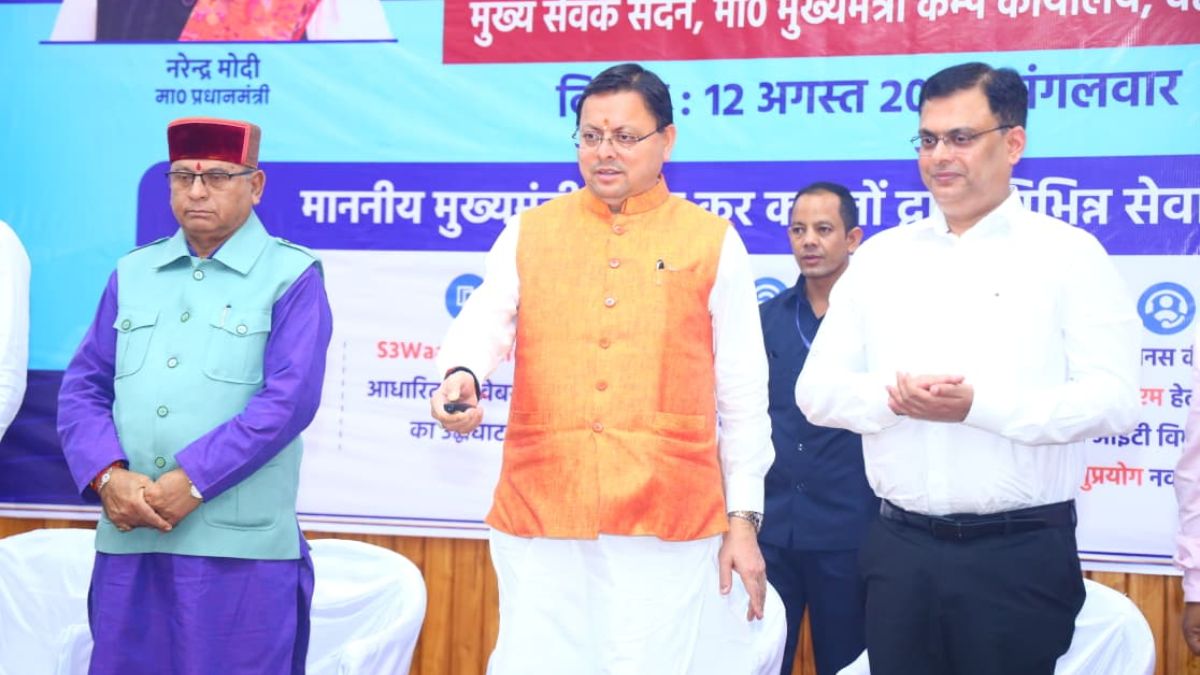Explained: Key amendments to Uttarakhand’s Panchayati Raj Act?
 Uttarakhand CM Pushkar Singh Dhami (centre) launches Information and Communication Technology-enabled services for the state on August 12 2025 | X
Uttarakhand CM Pushkar Singh Dhami (centre) launches Information and Communication Technology-enabled services for the state on August 12 2025 | X
In a move aimed at strengthening the Panchayati Raj, the Uttarakhand government has promulgated an Amendment Ordinance in the ongoing Vidhan Sabha session, with one key intervention being the reservation of offices and seats for Scheduled Castes (SCs), Scheduled Tribes (STs), and Backward Classes at different levels.
This ordinance, officially gazetted on May 16, introduces a series of amendments to the existing Uttarakhand Panchayati Raj Act, 2016, with far-reaching implications for the composition and functioning of Panchayati Raj institutions across the state.
A central feature of the ordinance is the explicit provision for the reservation of offices and seats for Scheduled Castes (SCs), Scheduled Tribes (STs), and Backward Classes at different levels of the panchayat system. The ordinance empowers the state government, guided by recommendations from a newly defined ‘Dedicated Commission,’ to determine the proportion of reservations for Backward Classes. While the proportion for SCs and STs in any given office is set according to their share of the population either at the state or panchayat area level, the quantum for Backward Classes will be based on contemporary empirical data and recommendations.
The cumulative reservation for SCs, STs, and Backward Classes at any level, whether for Pradhans, Pramukhs, Chairmen, or members, is not to exceed 50 per cent of the total, maintaining a balance as stipulated by constitutional principles. In cases where the designations for SCs and STs alone reach that 50% cap, no additional reservation will be provided to Backward Classes. If population data for Backward Classes is not readily available, the government is authorised to conduct fresh surveys to determine their numbers.
In a major step toward gender equity, the ordinance mandates that not less than half the seats or offices reserved for SCs, STs, and Backward Classes must be further reserved for women from these categories. Additionally, at least half of the total seats and offices at each panchayat tier, including unreserved seats, are now reserved for women.
The allocation of reserved seats and offices for Pradhans, Pramukhs, and other positions will rotate among different Gram Panchayats, Kshetra Panchayats, and Zila Panchayats as prescribed, ensuring equitable opportunity across regions and communities over successive terms.
The ordinance retains and clarifies strict disqualification criteria to promote responsible leadership. Individuals with more than two living biological children, with at least one born on or after July 25, 2019, are disqualified from holding office. However, this does not apply in cases where more than one child is born during a second pregnancy following the first child.
To enhance transparency, the ordinance specifies that any vacancies in the offices of Pradhan, Deputy Pradhan, Pramukh, Chairman, or members arising from death, removal, resignation, or invalidation of election must be filled within six months, except when less than six months remain in the term.
For election processes where the Act or its rules do not provide specific instructions, the State Election Commission is empowered to apply relevant provisions of the Representation of People Act, 1951, adding clarity and legal consistency.
The reservation of offices and seats for SCs and STs is explicitly linked to the time frame mentioned in Article 334 of the Indian Constitution, meaning these reservations would lapse as per constitutional deadlines, though individuals from these categories remain eligible to contest unreserved seats.
These amendments are aimed at making Uttarakhand’s local governance more inclusive, accountable, and reflective of its social diversity.
India